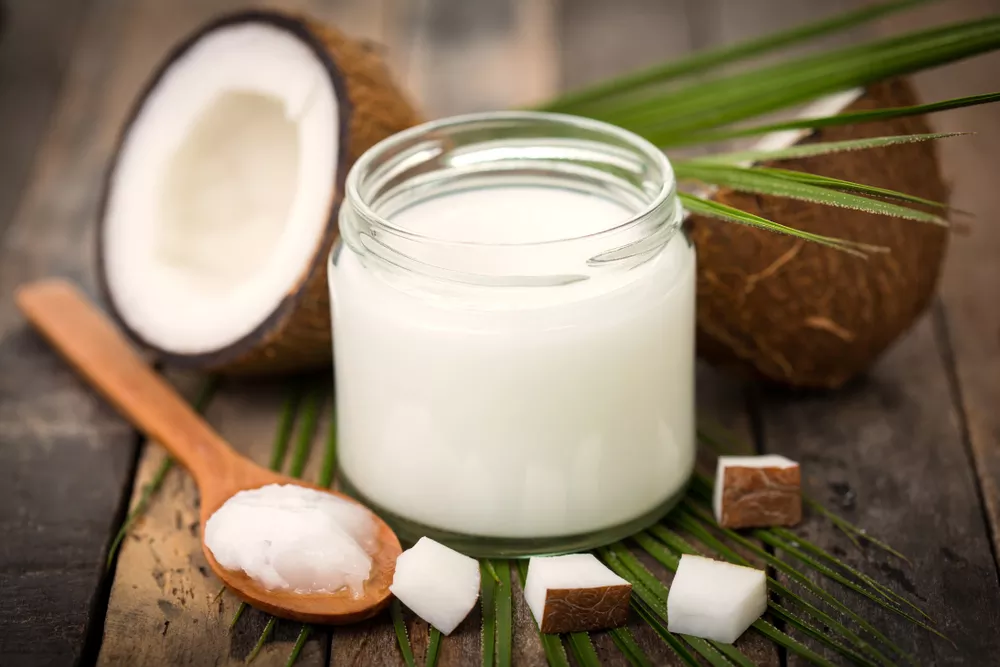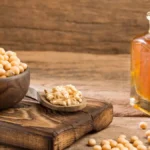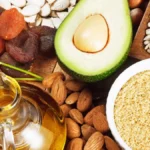Vegan is a fatty substance which had its heyday and which was widely used a few years ago, because it has the particularity of giving very golden and super crispy fries. But today, this fat is quite criticized for its composition, its fatty acid intake and its possible harmful consequences on health.
Coconut oil is increasingly found on the shelves of supermarkets, whether for cosmetic or culinary uses. Many benefits are dedicated to it, whether for the skin, hair or even from a dietary point of view.
Both vegan and coconut oil are obtained from the same food: coconut. However, coconut oil, which is the basis of vegan, and coconut oil are very different plant fats.
Let’s discover in this article the difference between vegan and coconut oil and their uses.
Focus on vegan
Végétaline is a brand that designates a fat which is composed of fully hydrogenated coconut oil.
Copra oil comes from the dry pulp of the coconut, and the hydrogenation it undergoes is a mechanism that increases the melting temperature of the coconut oil and thus obtains a hard product. and solid at room temperature. In fact, the addition of hydrogen allows you to have a fat that lasts longer but is also more stable at high temperatures. This is also why it is widely used in frying, whether for donuts or fries. It does not provide any additional taste or flavor or odor.
Like most fats, it is a very high-calorie product with 900 Kcal per 100 g. These calories are provided solely by lipids. To have a solid fat at room temperature, hydrogenation is a process that transforms fats into trans fatty acids. These fatty acids are harmful to the body. In the long term, excessive consumption of these fatty acids can have an impact on weight gain, the appearance of cardiovascular diseases or even high cholesterol levels. These fatty acids should represent less than 2% of the fats ingested.
The difference with coconut oil
Coconut oil is most commonly sold in jars and has the consistency of butter with a white color. In cooking, coconut oil is mainly used in baking where it can replace butter, especially for vegans. It is also very suitable for frying.
The first difference is based on origin. Unlike vegan, coconut oil is obtained from the pressing of fresh, not dry, coconut pulp. Additionally, coconut oil is liquid at room temperature and not solid like vegan. With this property, coconut oil fits into the category of vegetable oils while vegan is more of a vegetable fat.
In terms of taste, the difference is also very real between these two products. Coconut oil provides flavor and even an odor when used, which is not the case with vegan which is deodorized during its manufacture.
Their lipid composition is quite similar. Coconut oil also contains only lipids. Coconut oil is also rich in saturated fatty acids although it contains slightly less. It is particularly rich in lauric acid which has a positive impact on cholesterol levels.
The difference therefore lies in the fact that veganin is hydrogenated coconut oil. And it is this process that makes all the difference between the ownership of these two products.
 Receive every day
Receive every day
advice from our experts
to take care of you

Recommendation
Whether it is vegan or coconut oil, these two products are fats which are therefore very caloric and which contain a lot of saturated fatty acids. Even though coconut oil remains of better quality, it is important to limit the quantity and use of these products.
Daily fat intake still remains important and essential for the proper functioning of our body. Indeed, fatty substances are the only source of essential fatty acids that our body cannot produce. Each fatty substance, that is to say oils, butter or creams, provides different fatty acids. The priority is therefore to vary these while limiting the daily quantity.
93% Readers found this article helpful And you ?
Was this article useful to you?













